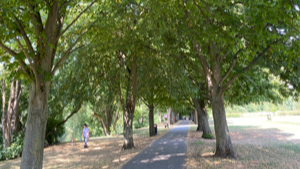 In a landmark judgment, the Supreme Court has ruled in favour of a resident who claimed a statutory trust created in 1926 gives residents rights of recreation over a piece of land even after Shrewsbury Town Council sold it to a developer.
In a landmark judgment, the Supreme Court has ruled in favour of a resident who claimed a statutory trust created in 1926 gives residents rights of recreation over a piece of land even after Shrewsbury Town Council sold it to a developer.
image: for illustration only
Leigh Day Law Firm writes:
Supreme Court Justices agreed with Dr Peter Day that Shrewsbury people’s rights over the land at Greenfields Recreation Ground were not extinguished by the sale of land and should have been considered by Shropshire Council before they granted planning permission for a housing development. As a result of the judgment, planning permission has now been quashed.
The ruling is of major importance to local authorities and their approach to selling off land that has been protected by means of a statutory trust.
The Shrewsbury land was part of a plot secured for public recreation by a statutory trust in 1926 but Shrewsbury Town Council sold the land to a developer in 2017 without advertising or consulting with the public, which they were required to do…..
The Supreme Court ruled that:
- Section 128(2)(b) of the Local Government Act 1972 is not designed to free land from public trusts when that land is sold and should not be read as having accidentally done so.
- The public recreation rights over the recreation ground were material considerations that needed to be taken into account when it came to giving planning permission for housing development.
Ahead of today’s ruling, and in response to an independent report, Shrewsbury Town Council apologised and pledged to return the land to public use but it has been waiting for today’s judgment before it commits to further action.
